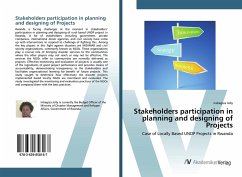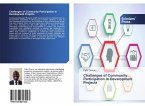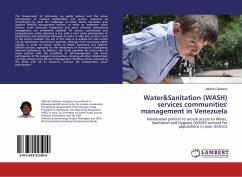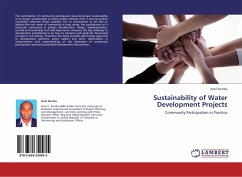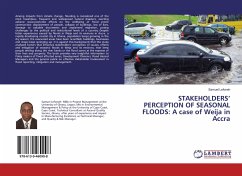Rwanda is facing challenges at the moment in stakeholders' participation in planning and designing of rural based UNDP project in Rwanda. A lot of stakeholders including government, private companies, international donor agencies, and civil society have come up with interventions to respond to challenge of fighting this. Among the key players in this fight against disasters are MIDIMAR and civil society organizations, commonly known as NGOs. These organizations play a crucial role of bringing disaster services to the communities where the other players may not reach or may not be effective. The services the NGOs offer to communities are normally delivered as projects. Effective monitoring and evaluation of projects is usually one of the ingredients of good project performance and provides means of accountability, demonstrating transparency to the stakeholders and facilitates organizational learning for benefit of future projects. This study sought to determine how effectively thedisaster projects implemented based locally NGOs are monitored and evaluated. The study investigated the monitoring and evaluation practices of the NGOs and compared them with the best practices.
